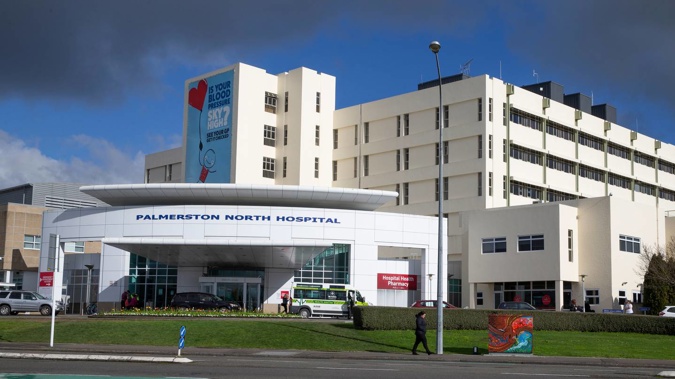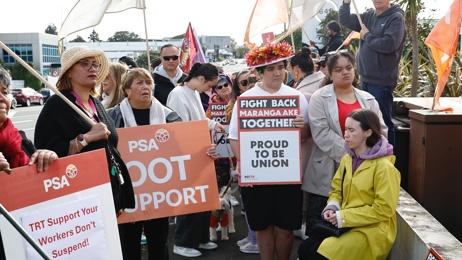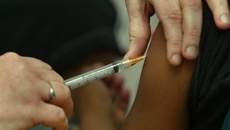
By Jimmy Ellingham of RNZ
Many doctors at Palmerston North Hospital operate under a siege mentality, where they fear speaking out about concerns, and they often face barriers when trying to transfer patients between departments, according to a damning new report.
The report was commissioned after the death of a heavily pregnant woman early last year when the woman’s admission to the hospital’s intensive care unit with sepsis was delayed. Her child was stillborn.
Completed this month, the Review of Culture and Climate amongst Medical Staff interviewed senior and junior doctors in March and has published a summary of their comments without naming them.
Report author Jonathan Black, a chartered organisational psychologist, made seven recommendations.
One of them was to clarify “pathway of care expectations” when patients were referred between departments and specialities.
This would minimise or remove the “influence of idiosyncratic approaches” from doctors or surgeons. Such approaches created “inconsistency and unnecessary anxiety for a patient and treating physician[s]”, Black said in his report, which RNZ has obtained.
The pregnant woman’s delayed admission to the intensive care unit lasted several hours, as her condition worsened, and despite it being clear she was critically ill.
The woman, whose death was before the coroner, arrived at hospital in the early hours of the morning one day in February last year, with signs of severe sepsis. She only made it to intensive care in the evening and died later that night.
/cloudfront-ap-southeast-2.images.arcpublishing.com/nzme/GFZOCQ5TXBB4HDY54GY4DEOISY.jpg)
Palmerston North Hospital, MidCentral Health. Photo / Ross Setford, File
Black recommended Te Whatu Ora MidCentral urgently consider funding a dedicated high-dependency unit and better-resourced intensive care.
High-dependency units were for patients who fall short of needing the critical support intensive care provides, but were still seriously ill.
Palmerston North did not have such a unit, but late last year Te Whatu Ora MidCentral district director Dr Jeff Brown said a refurbished eight-bed intensive care/high-dependency unit was expected to be fully staffed by mid-2023.
And, RNZ revealed, despite concerns about the limitations of the intensive care unit surfacing more than a decade ago, a new acute services facility at the hospital was at least six years away.
Other recommendations related to concerns about raising problems, including creating a professional communication committee “as a means to raise, address and resolve workplace relationship challenges at SMO level”. SMO means specialist medical officer, such as a doctor or surgeon who works in a particular field.
Black recommended Te Whatu Ora MidCentral urgently consider funding a common area for specialist medical officers, and junior staff, and funding a supervision programme.
‘Whirlpool of accumulated tension’
Black said he identified 15 “dominant workplace culture themes”.
Four were linked to positive experiences, such as a dedication to care and advocacy and a strong connection to immediate colleagues.
“Eight identified themes were negative, indicating that the majority of the SMO community at MidCentral had experienced these in a significant way that had frequently produced substantial discomfort, distress and harm impacting them personally and professionally and, by implication, had also impacted patient care.”
/cloudfront-ap-southeast-2.images.arcpublishing.com/nzme/IL3T3IHX6NHXJDDXRWNCXJBN4I.jpg)
A better-resourced intensive care unit is among the recommendations. Photo / 123rf, File
These areas include siege mentality; fear of disagreement and the consequences of doing so; high presence of personal and undermining criticism; a lack of resolution and action arising from genuine concerns; and a narrow concentration of power and influence.
“Few remained untouched or unimpacted by the eight negative cultural themes described,” Black wrote.
“Causes of these experiences are complex and historical. There was broad agreement that the current work culture, in areas most impacted, was untenable with multiple causes, and positive change would be welcomed.”
Black found departments, generally because of a lack of resources, were unwilling to “expend resources”.
“For SMOs with a strong, patient-centred philosophy this contributes, in part, to an ongoing sense of moral injury.
“Decisions are made regarding resource expenditure and use of clinical time and skill that, for many, creates frequent and ongoing difficult compromises directly causing angst, anger, frustration and despondency at often daily decisions regarding care that are less than what a typical SMO seeks in providing care for their patients.”
At worst, this was shown as deliberate obstruction and refusing to help.
“Some departments are subject to the effects of this more than others and in a manner significantly harmful to all involved, without exception.”
Discussions about patient care between departments often involved argument, blame and accusation.
“Medical staff are caught in the middle of a whirlpool of accumulated tension regarding transfer between specialities, and multi-speciality involvement, that directly impacts interpersonal relationships, patient care pathways and, ultimately, patient outcomes.”
There was a fear of speaking out in disagreement with decisions, and the consequences of doing so from colleagues with power or influence.
Relating to this was the presence of an old boys’ club mentality.
Staff were concerned about the hospital’s physical limitations, such as a lack of space and poor facilities.
Black wrote that the postponement or changes to previous plans to begin a rebuild of the hospital had affected morale and eroded trust in management at local and senior levels.
There has been considerable effort to recruit more staff, but not enough to keep up with demand. Meanwhile, staff were leaving because of the workplace environment.
‘Trust gap’
Black described a “trust gap” between senior leaders and many clinical staff.
“There is also broad concern that the style and approach of some members of the executive leadership team is at times unnecessarily judgmental, defensive, protective, unwilling to change, and disparaging of ideas, needs and disagreement arising from a diverse SMO community.”
Not having enough staff to cope with patient numbers had a huge effect, contributing to fatigue, conflict between colleagues and battles for resources.
“It is difficult to over-emphasise the wider clinical context regarding workload, and to which many SMOs referred to as accumulating in recent years with very limited relief.”
Black wrote that staff were strongly focused on helping patients, although a willingness to share knowledge was not always matched by an openness to new ideas and perspectives.
“Accumulated factors have combined over a number of years across the wider medical staff that has directly led to the universal development of a siege mentality with regards to the challenges of achieving expected standard of patient care within the health system.”
Te Whatu Ora reaction
A statement from MidCentral chief medial officer Dr Kelvin Billinghurst said Te Whatu Ora valued its workforce and was committed to “fostering and providing a safe and positive culture within the workplace”.
/cloudfront-ap-southeast-2.images.arcpublishing.com/nzme/7FQBSOU7BNH3VH67IUYCYPICKU.jpg)
MidCentral District Health Board chief medical officer Dr Kelvin Billinghurst. Photo / MidCentral DHB, File
“The review was commissioned by Te Whatu Ora MidCentral in 2022. The process provided a confidential method to express areas of strengths, concerns and solutions pertinent to medical staff.
“As the report is not in its final iteration, it is premature to comment on the contents.”
Billinghurst said the report we welcomed, and Te Whatu Ora would work on the recommendations with its teams and specialist medical officers.
Questions about the cost of the review, or progress on its own investigation into the pregnant woman’s death were not answered.
Union calls on management to act
Resident Doctors’ Association national secretary Dr Deborah Powell said the report’s findings came as no surprise.
“The union did a survey of MidCentral, looking at bullying and how approachable and supportive management were at the [then] MidCentral District Health Board in 2018, and again in late 2019, and we found very similar things back then.”
/cloudfront-ap-southeast-2.images.arcpublishing.com/nzme/4KHU5AP5ZA3O2ZDSDI6HRCMAHU.jpg)
Dr Deborah Powell. Photo / NZRDA, File
Then, resident - or junior - doctors did not have confidence management would deal with bullying, and staff who spoke out about matters they disagreed with were alienated.
Anyone critical of management was treated poorly, and the top layers of management were seen as supporting the lower levels’ poor behaviour.
Powell said MidCentral’s senior executives told her work was happening to deal with that, making it safe for people to speak up.
“It’s unfortunate that would appear not to have any major effect at MidCentral.”
She said Black’s report could not just sit on a shelf. To make change senior management had to work with staff and unions to design a way forward.
“I read the report with a heavy heart. It’s great that the doctors keep on trying despite the circumstances, but where is the help from management?
“We’re just not seeing enough of that. I’m putting the accountability here on the managers’ door and I want to see some change.”
Powell even mooted the idea of a code of rights for staff.
National Party health spokesman Dr Shane Reti said Black’s report strongly identified workplace factors as affecting the culture, as staff were tired and exhausted.
“The second thing that struck me was more around the pure culture at MidCentral, particularly the tension between management and the clinical team, with the management being described as unnecessarily judgmental, defensive, protective, unwilling to change and disparaging of ideas.
/cloudfront-ap-southeast-2.images.arcpublishing.com/nzme/EMXAIUQGYA4FUZ4PKB6DBWF3UE.jpg)
National Party health spokesperson Shane Reti. Photo / Mark Mitchell, File
“I think when you’ve got this tension between management people and clinical people you’re not a cohesive team trying to achieve the outcomes you want to achieve.”
Reti said that was somewhat explained by the backdrop of reform in the sector and organisational change.
But “quite corrosive” parts of the culture were uncovered by the report, such as disparaging remarks about colleagues, and undermining and belittling comments.
Te Whatu Ora needed to work on workforce pressures. Reti supported the recommendations Black made about confidential professional supervision and a professional communication committee.
He also questioned why nurses were not included in Black’s review.
Take your Radio, Podcasts and Music with you









